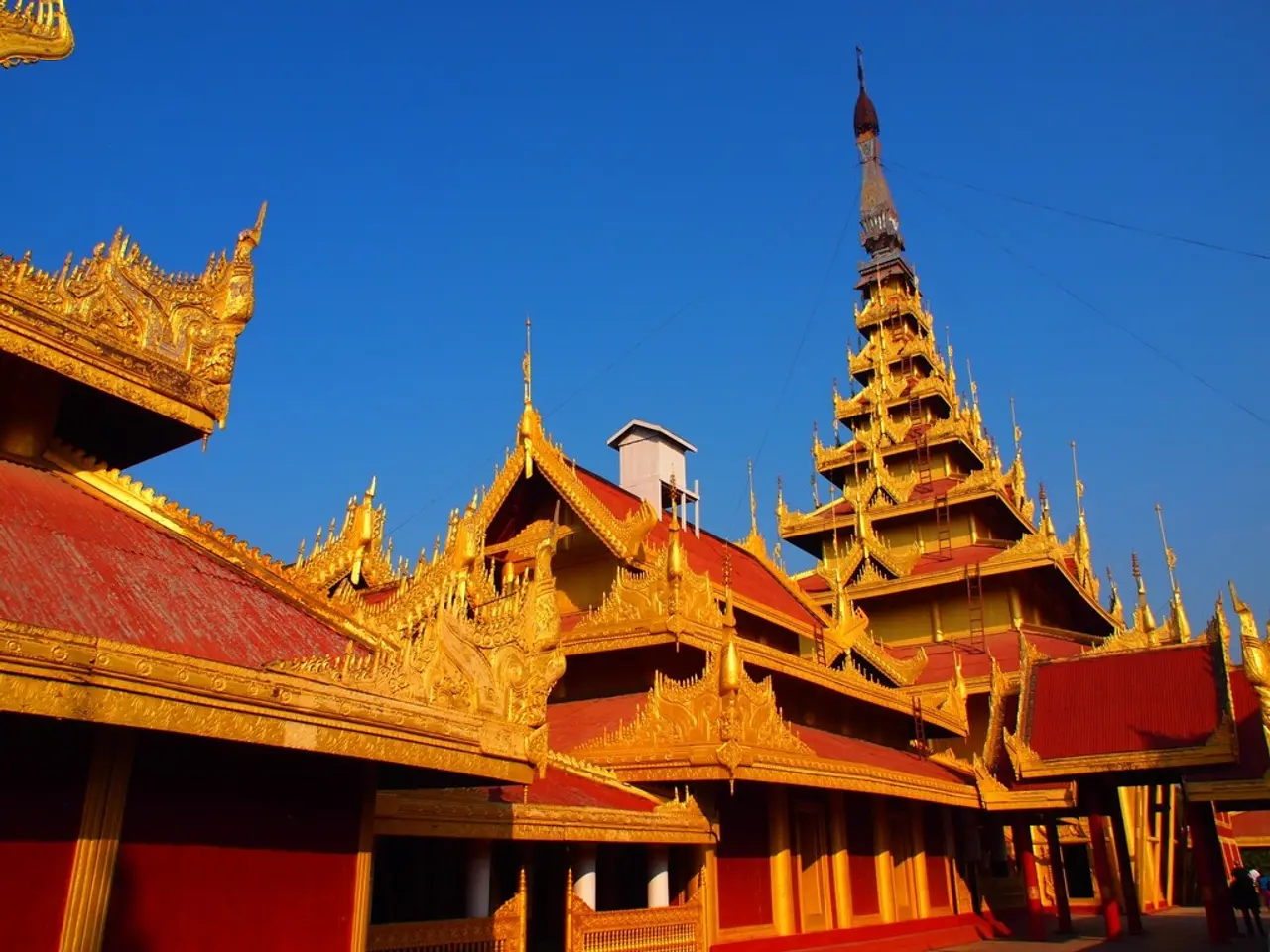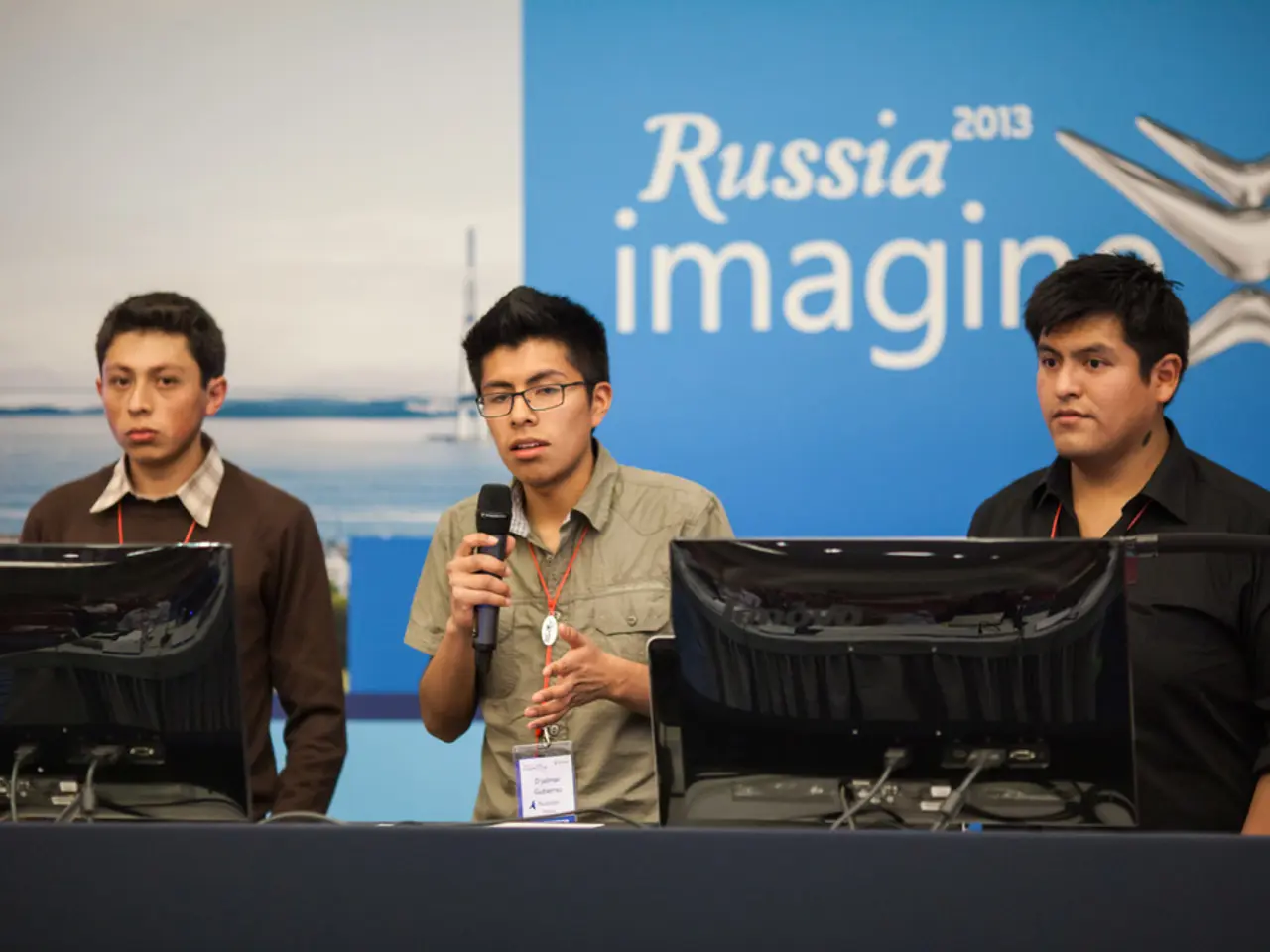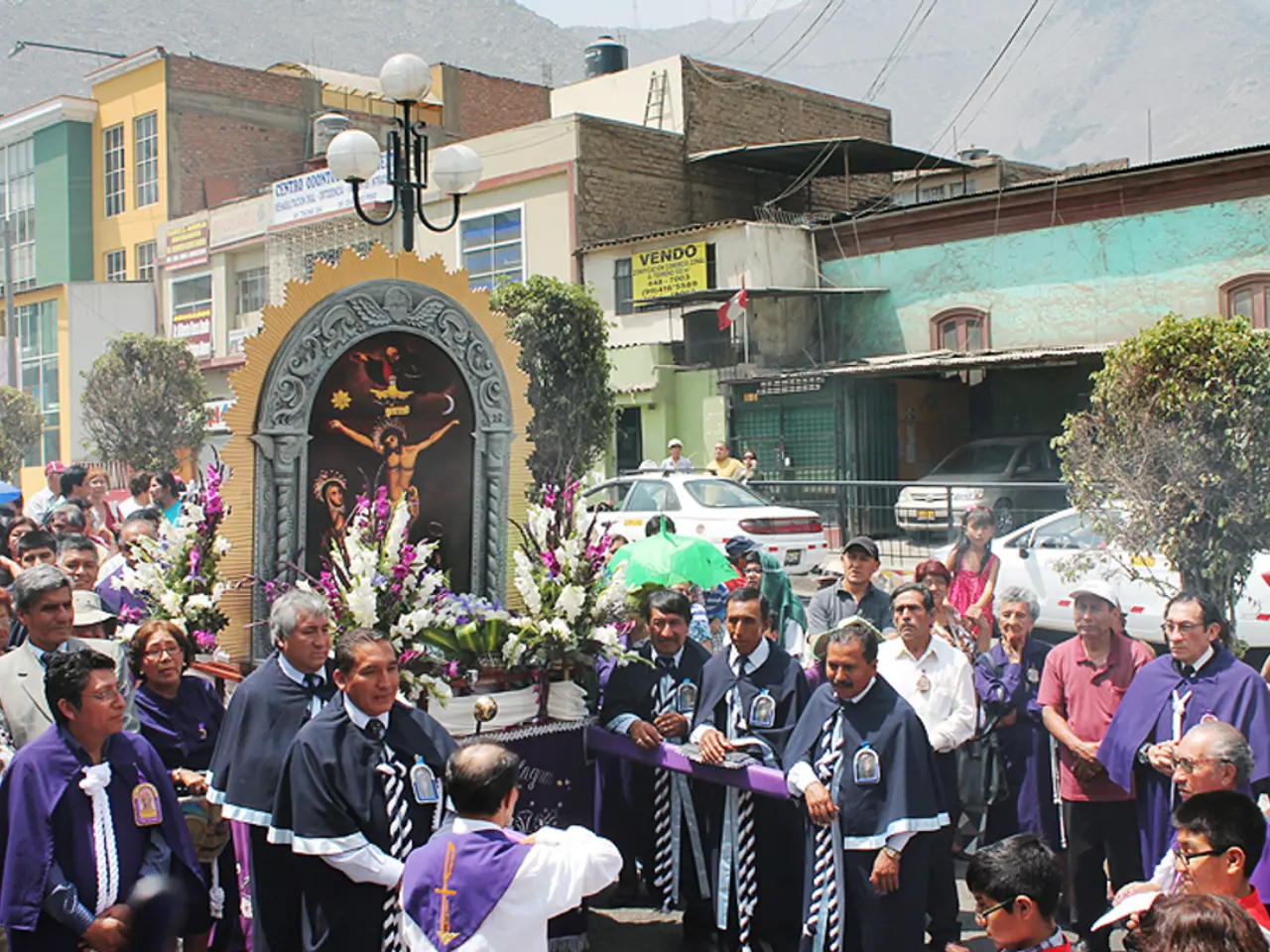PM's Visit to Tamil Nadu Sparks Political and Historical Debate
In a significant move, Prime Minister Narendra Modi's recent visit to Tamil Nadu has bolstered the political alliance between the BJP and the AIADMK. The visit, which took place from July 26 to 27, 2025, focused on infrastructure projects and cultural symbolism, aiming to resonate with the Tamil identity and enhance the BJP's appeal in the region.
During his visit, Modi participated in the birth anniversary of Rajendra Chola I at the Gangaikonda Cholapuram temple. This cultural event served as a reminder of the ancient Chola dynasty's legacy and its potential roadmap for modern India to become a developed nation, as Modi had previously stated.
The religious and heritage emphasis of the visit provides a cultural counterpoint to the DMK’s narrative, helping the BJP consolidate Hindu nationalist support and potentially attract votes from voters aligned with Hindu identity politics.
Modi's strategic engagements with AIADMK leaders during the visit also served to alleviate public disagreements within the alliance, sending a message of alliance cohesion to both cadres and the electorate.
The BJP's use of visits intertwining development, culture, and religious symbolism is part of their electoral strategies to strengthen regional alliances and consolidate their base in Tamil Nadu, where identity politics plays an important role.
Edappadi K. Palaniswami, the top honcho of the AIADMK, has been waiting for clarification about the nature of the alliance with the BJP. Palaniswami claims that the AIADMK will lead the coalition, with him as the Chief Minister if the alliance wins. However, Amit Shah, the Union home minister, scripted the alliance singlehandedly without any interference from the AIADMK.
Despite these developments, the AIADMK's rivals predict an overrun of the party by the BJP after it helps the national party win some seats in the Assembly polls. Palaniswami has embarked on a State-wide campaign tour for elections, which are close to a year away.
Chief Minister M.K. Stalin of Tamil Nadu has accused Modi of holding back funds meant for Tamil Nadu under the Samagra Siksha Abhiyan scheme and raised several demands. However, Modi has not addressed these accusations or demands during his visit to Tamil Nadu.
In conclusion, Modi's visit and religious activities have reinforced the BJP-AIADMK political alliance by boosting alliance morale, underscoring shared cultural identity, and signaling BJP's choice of partners ahead of the Tamil Nadu elections. The visit has also served to alleviate public disagreements within the alliance and consolidate the BJP's base in Tamil Nadu.
- The political visit of Prime Minister Modi to Tamil Nadu has sparked discussions in the realm of policy-and-legislation, as the BJP's electoral strategies seem to focus on consolidating their base in Tamil Nadu through the integration of development, culture, and religious symbolism.
- The focus on cultural symbolism during Prime Minister Modi's visit to Tamil Nadu, such as his participation in the birth anniversary of Rajendra Chola I, has served to emphasize the shared Hindu identity politics between the BJP and its allies, specifically the AIADMK, thereby influencing the outcome of the future general-news and political events in the region.








